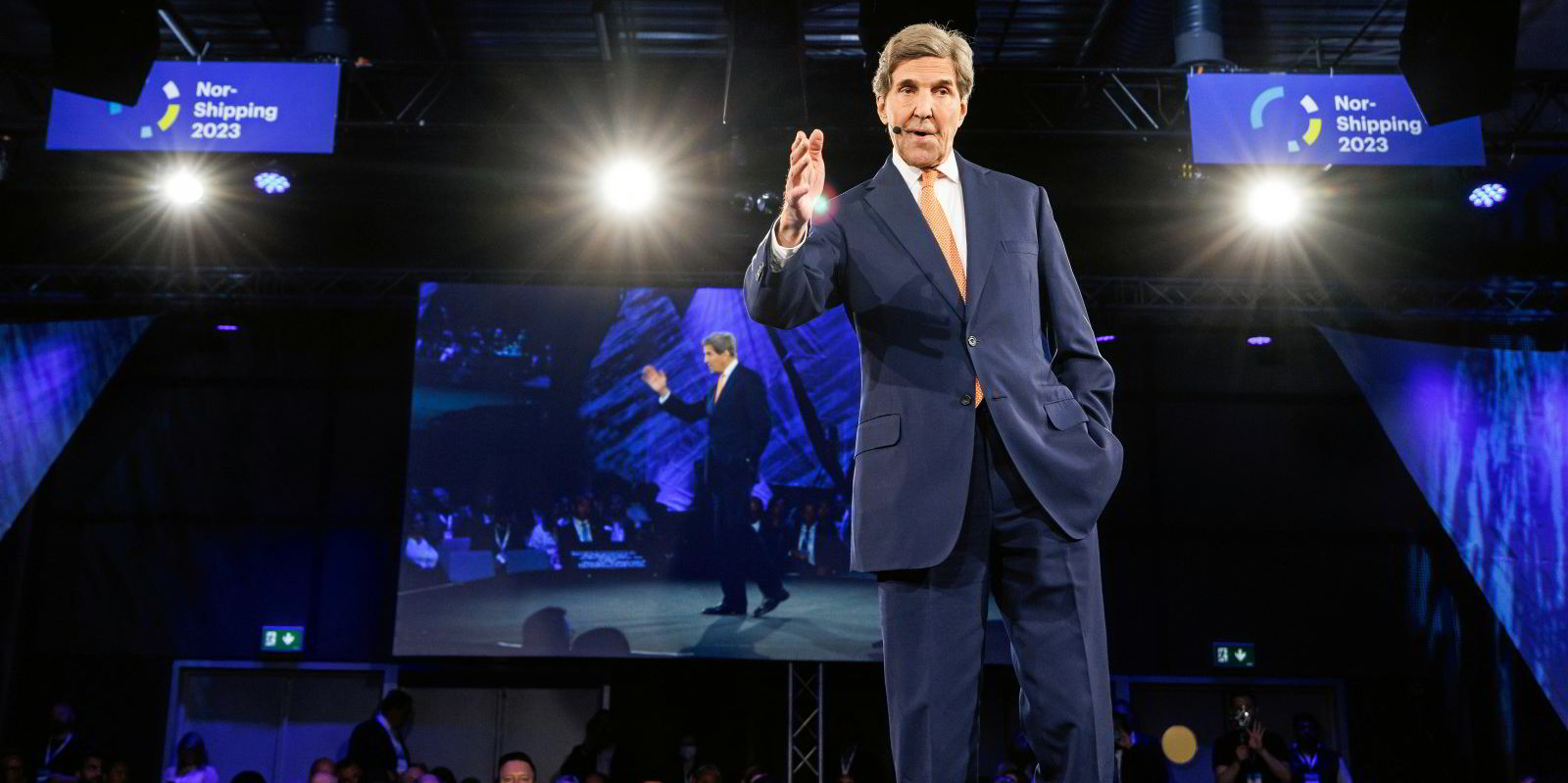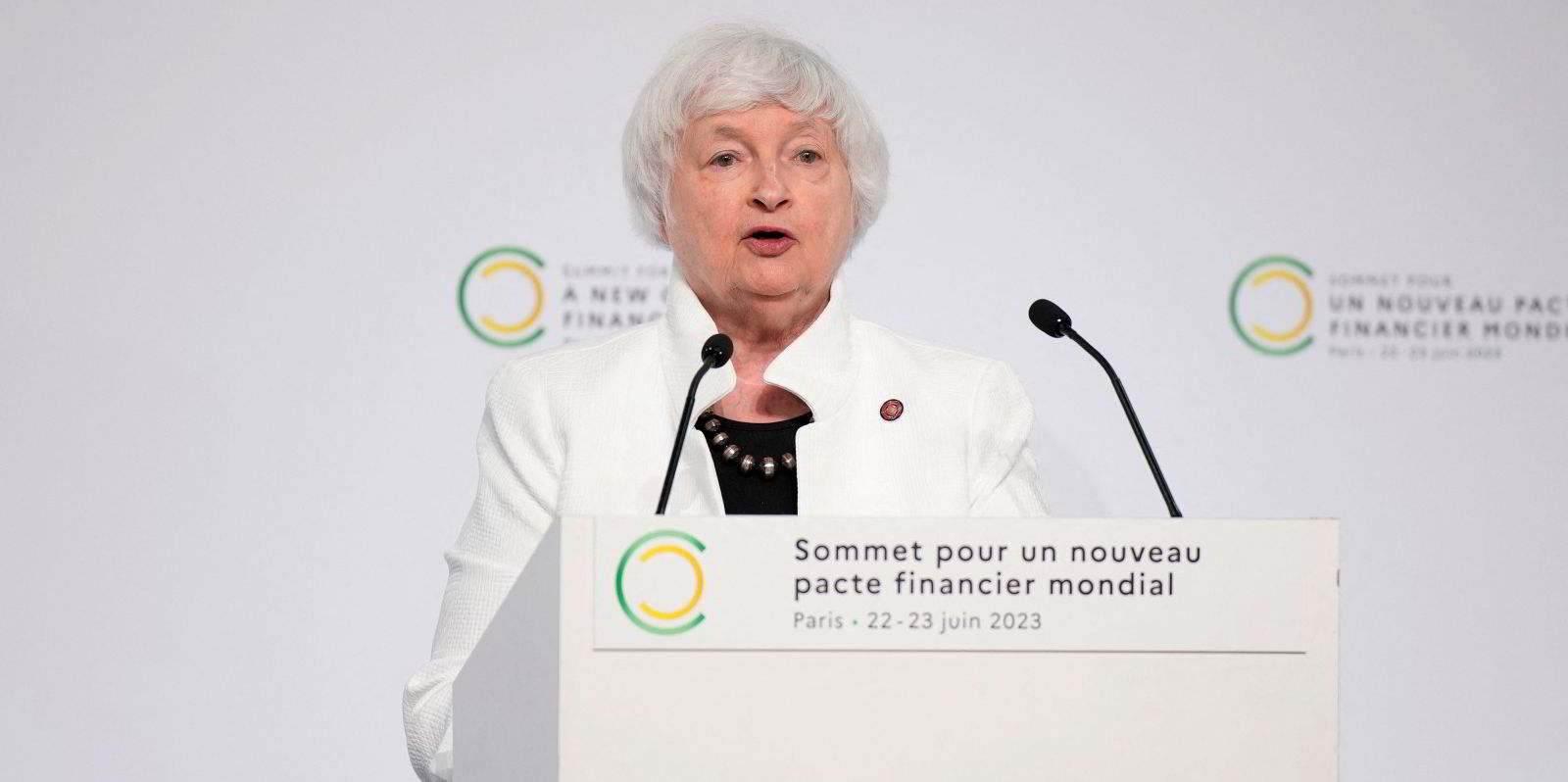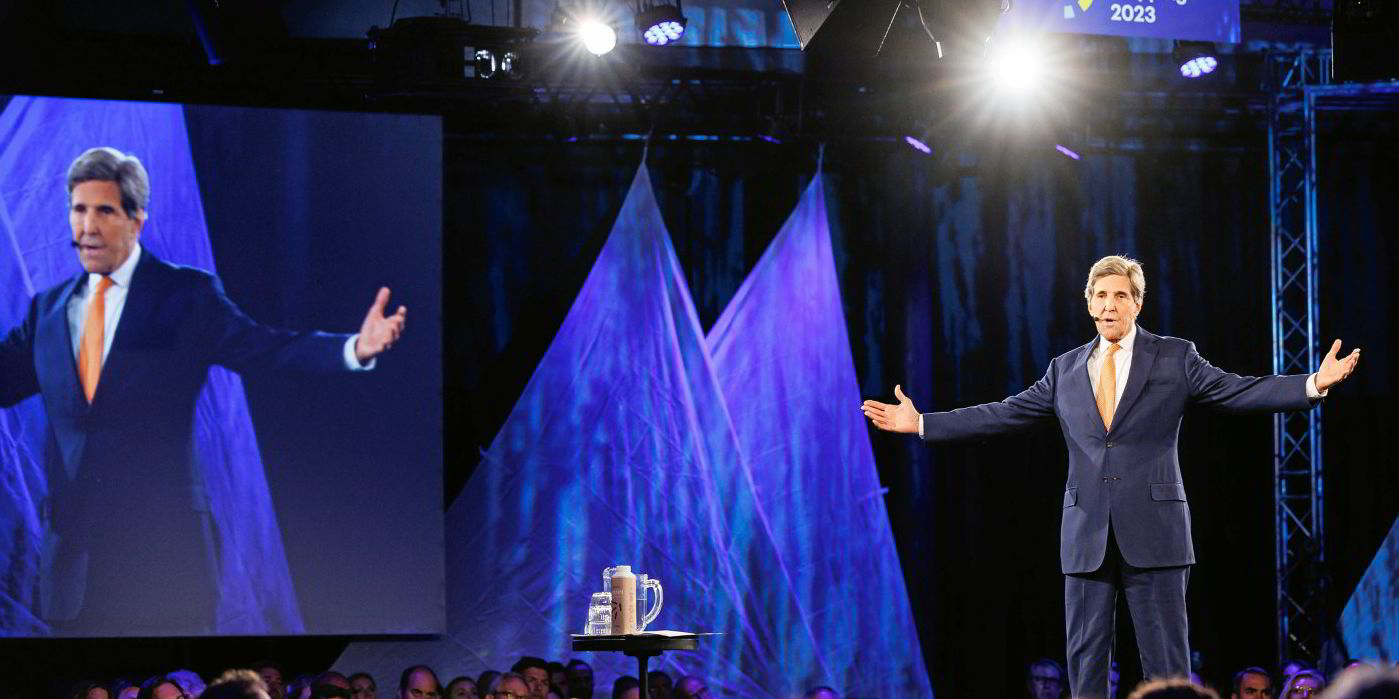The US is among a chorus of nations calling for the International Maritime Organization to target a zero-carbon goal for 2050 and for interim targets leading up to that.
But the administration of US President Joe Biden is not throwing its support behind a tax on the industry’s greenhouse gas emissions, at least not yet, even as a growing number of nations have supported such a measure.
Ahead of two weeks of crucial meetings at the IMO, a senior administration official said the US is supporting interim targets in 2030 to cut shipping emissions by 37% and supports a global fuel standard that would ratchet down greenhouse gas content.
But the official said the US has not been pushing for a specific economic measure, though the Biden administration is open to such measures in the future.
The IMO will hold working group meetings, starting Monday, and a meeting of the Marine Environment Protection Committee is scheduled to hold a vote on what could be a historic agreement on shipping’s greenhouse gas emissions the following week.
Those meetings are expected to culminate in a new target for 2050 that would take the current goal, calling for 50% reductions, to a new ambition to achieve zero or net zero emissions.
A carbon levy will be a part of the discussions, but a final decision on putting a price on greenhouse gas emissions is not scheduled for the meetings that are about to start.
Asked about why Washington has not yet voiced support for a carbon levy, the official said the administration would be happy to consider it but pointed to the fact that the IMO is not scheduled to adopt a pricing mechanism this year.
But ahead of the IMO meeting, some 22 countries expressed support for a tax on carbon in the shipping industry during a summit in Paris, according to a Bloomberg report on Friday.
Asked about a carbon tax on shipping at the summit for a New Global Financing Pact, US Treasury Secretary Janet Yellen said the administration is “very open” to such innovative approaches to addressing climate change.
“I think this is a very constructive suggestion,” she said as she stood next to French President Emmanuel Macron, who expressed support for a levy. “I think it’s something we’ll look at.”
Kerry’s crusade
US presidential climate envoy John Kerry — who likes to say shipping would be the world’s eighth-largest emitter if it were a country — has been vocal about calling for the IMO to adopt a 2050 target in line with capping global temperature rises at 1.5C.
“That means committing to 2030 goals, not just 2050 goals,” he recently said on Twitter.

He also said that involves a zero emissions goal, rather than a net zero goal.
Senior administration officials said the choice of wording is aimed at conveying that reductions can happen within the shipping sector, but should exclude offsets from outside shipping — such as planting trees.
Life-cycle analysis
But they also said getting to zero emissions must look at fuels from a full life-cycle perspective, meaning that it should factor in the emissions in the supply chain of fuels.
The officials said reducing greenhouse gas emissions by 37% in 2030 is achievable, with a combination of new fuels, operational efficiencies, slower speeds, just-in-time arrival and emerging technology such as wind assistance.

Kerry has pushed private-sector initiatives such as the First Movers Coalition, and officials highlighted other efforts such as the Global Maritime Forum’s Getting to Zero Coalition as examples of the way non-state actors can move forward with shipping’s decarbonisation.
But they acknowledged that first movers will not achieve the more ambitious targets alone, which they said highlights the importance of governments setting the direction of travel at the IMO.
Key measure
However, many shipping stakeholders and IMO delegations point to a global carbon levy as key to tackling the price premium of green fuels and motivating companies to decarbonise.
Asked how shipping can be incentivised to reach a 2030 target without committing to a carbon levy, one Biden administration official pointed to the planned 2026 revision of the Carbon Intensity Indicator, which grades ships based on their emissions per tonne of cargo carried and distance travelled but currently lacks an enforcement mechanism.
But he said it is not the only factor. He noted that the IMO timeline could lead to the adoption of midterm measures — which could include a basket of policy measures such as a carbon levy and a fuel standard — in 2027.
He said developments outside the United Nations’ shipping regulator’s walls, such as the European Union’s efforts, could also contribute.
Read more
- Navigator and Bumi forge preliminary deal to launch UK-focused CCS venture
- ‘This is waste management’: Keeping costs low expected to be key to success in maritime CCS market
- ‘Significant moment’: UN adopts landmark ocean biodiversity treaty
- Editor’s selection: World Bank wades in to carbon levy debate, Greeks after big tankers and wind farm shipping giant formed
- Video: Transmed’s Nicole Mylona says efficiency upgrades not fully recognised in the way ships are rated





